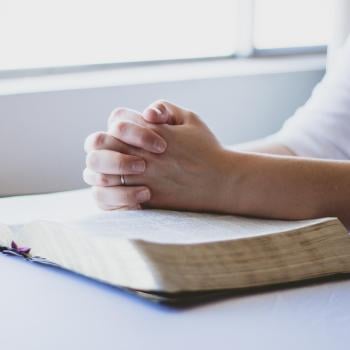Lectionary Reflections
Acts 8:26-40
Fifth Sunday of Easter
May 6, 2012
Today's text is one of the more delightful ones in Luke's arsenal of good stories. Whether or not Luke was a physician of one sort or another, he was certainly a talented 1st century raconteur. He writes his Acts under the influence of his programmatic 1:8: the risen Jesus promises his apostles, "But you will receive power when the Holy Spirit has come upon you; and you will be my witnesses in Jerusalem, in all Judea and Samaria, and to the ends of the earth." What the "ends of the earth" meant in Luke's geography certainly included Rome (more specifically the "center" of the earth in the 1st century) but surely included "Spain," Paul's ultimate missionary goal, as his Roman letter makes clear. In short, the Book of the Acts will follow this trajectory, beginning in Jerusalem (chap. 1) and ending with Paul preaching openly in Rome (chap. 28). To follow this arc, Luke will sprinkle his text with lively and engaging tales of Christianity's growth and expansion, due primarily to a band of hardy evangelists, who find themselves again and again in various sorts of hot spots, forced to perform astonishing acts of theological derring-do.
And Acts 8 is one of those sorts of tales. Fresh from evangelistic triumphs among the Samaritans (8:4-13), Philip is given a new assignment by no less than "an angel of the Lord," who commands him, "Get up and go towards the south (the word can also mean 'noontime') to the road that goes down from Jerusalem to Gaza" (one always goes "up to" or "down from" Jerusalem, due to its over 2000 foot altitude, among the highest cities in the land). Luke wants us to know "this is a wilderness road," meaning that it is wild and dangerous, far from the safest route one might take upon leaving the sacred city of the Jews. Without comment, Philip "got up and went." We note that the call of the angel did not bother to tell Philip just exactly what he was supposed to do on this wild road, cut through the western deserts of Israel, but Philip, like all his evangelistic brothers and sisters, is alert to the sudden and mysterious call of angels, the Holy Spirit, or even the Lord himself.
Of all people, Philip is shown an Ethiopian eunuch, a very high official in the court of Queen Candace (or "the Candace;" there is an argument concerning whether Candace is a name or a title); in fact, "he was in charge of her entire treasury" (8:27). Several facts need to be noted about this travelling Ethiopian. His nationality triggers any number of memories from the Hebrew Bible. For example, Isaiah 11:11 promises a future day when "YHWH's hand will be extended a second time to recover the remnant that is left of God's people, from Assyria, from Egypt, from Pathros, from Ethiopia (Hebrew "Cush"), from Elam, from Shinar, from Hamath, and from the coastlands of the sea." This prophecy is found in the same chapter with the marvelous promise of "the shoot from the stump of Jesse," and the classic portrait of "wolf lying down with lamb," being lead by "a little child," pictures that play such powerful roles in the formation of the early church's belief in Jesus. Plainly, this Ethiopian represents for Luke the beginning of the fulfillment of this ancient promise.
In addition, he is a eunuch, a physically mutilated man, many of whom became significant political figures in any number of ancient courts. For example, in the Septuagint translation of the Hebrew Bible, at Jeremiah 41:19, the Hebrew "eunuch" is translated dynastes, the very term Luke uses in verse 27 for "official." Still in Deuteronomy 23:1 it says plainly that "no one whose testicles are crushed or whose penis is cut off shall be admitted to the assembly of YHWH." In other words, this eunuch, according to Jewish law, can never be a full member of a Jewish worshipping community. This eunuch may have just returned from worshipping in Jerusalem (8:27), but his complete participation is precluded. It is true that Isaiah 56:4-5 does promise that "eunuchs who keep my Sabbaths" and God's covenant would some day be granted a place in God's house, but even that language sounds a bit grudging—just what sort of "place" will a eunuch be granted? A back pew? A spot in the balcony? A eunuch room?
Whatever his acceptance may or may not have been in Jerusalem, this eunuch has performed his religious duty to worship in Jerusalem and is now going back to the court of Ethiopia. He rides in a chariot large enough for him to be seated (8:28), further suggesting his great status and wealth. He passes the time during the long journey by reading the prophet Isaiah. Philip sees the large chariot, and now the Spirit (not merely an angel) commands him to "go over to the chariot and join it." Philip runs over to the chariot and overhears the eunuch reading Isaiah. (Reading in the ancient world was often aloud. Some 300 years later, Augustine will say in his Confessions that he finds it very odd that bishop Ambrose is found reading silently!)





